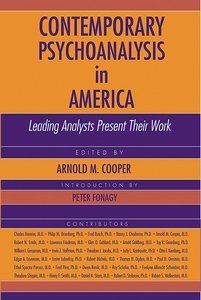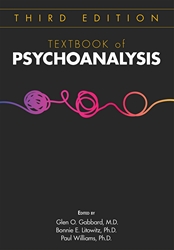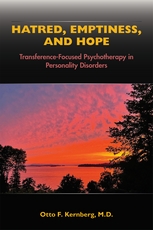Contemporary Psychoanalysis in America
Leading Analysts Present Their Work
View Pricing
Description
This book is a unique and superb gateway to current psychoanalytic thinking. Thirty of America's foremost psychoanalysts—leaders in defining the current pluralistic state of the profession—have each presented what they consider to be their most significant contribution to the field. No mere anthology, these are the key writings that underlie current discussions of psychoanalytic theory and technique.
The chapters cover contemporary ideas of intersubjectivity, object relations theory, self psychology, relational psychoanalysis, hermeneutics, clinical technique, changing concepts of unconscious, empirical research, infant observation, gender and sexuality, and more. While the differences in point of view are profound, there is also a striking coherence on some core issues. Each of the contributions features an introduction by the volume editor and a note by the author explaining the rationale for its selection. The brilliant introduction by Peter Fonagy provides an overview and places each author in the context of contemporary psychoanalysis.
A list of the authors may convey the astonishing breadth of this volume:
Brenner, Bromberg, Busch, Chodorow, Cooper, Emde, Friedman, Gabbard, Goldberg, Greenberg, Grossman, Hoffman, Jacobs, Kantrowitz, Kernberg, Levenson, Luborsky, Michels, Ogden, Ornstein, Person, Pine, Renik, Schafer, Schwaber, Shapiro, Smith, Stern, Stolorow, Wallerstein
This is a best of the best volume—cutting-edge writing, highly accessible and studded with vivid clinical illustrations. Anyone wishing to acquire a comprehensive, authoritative, readily accessible—even entertaining—guide to American psychoanalytic thinking will find their goal fulfilled in this monumental collection.
Contents
- Contributors
- Preface
- Introduction: Walking Among Giants
- Chapter 1. Conflict, compromise formation and structural theory
- Chapter 2. Treating patients with symptoms—and symptoms with patience: reflections on shame, dissociation, and eating disorders
- Chapter 3. In the neighborhood: aspects of a good interpretation and a developmental lag in ego psychology
- Chapter 4. Heterosexuality as a compromise formation: reflections on the psychoanalytic theory of sexual development
- Chapter 5. The narcissistic-masochistic character
- Chapter 6. Mobilizing fundamental modes of development: empathic availability and therapeutic action
- Chapter 7. Ferrum, ignis, and medicina: return to the crucible
- Chapter 8. Miscarriages of psychoanalytic treatment with suicidal patients
- Chapter 9. Between empathy and judgment
- Chapter 10. Conflict in the middle voice
- Chapter 11. The self as fantasy: fantasy as theory
- Chapter 12. Ritual and spontaneity in the psychoanalytic process
- Chapter 13. On misreading and misleading patients: some reflections on communications, miscommunications, and countertransference enactments
- Chapter 14. The external observer and the lens of the patient-analyst match
- Chapter 15. Recent developments in the technical approaches of English-language psychoanalytic schools
- Chapter 16. The pursuit of the particular: on the psychoanalytic inquiry
- Chapter 17. A relationship pattern measure: the Core Conflictual Relationship Theme
- Chapter 18. Psychoanalysts' theories
- Chapter 19. The analytic third: implications for psychoanalytic theory and technique
- Chapter 20. Chronic rage from underground: reflections on its structure and treatment
- Chapter 21. Knowledge and authority: the godfather fantasy
- Chapter 22. The four psychologies of psychoanalysis and their place in clinical work
- Chapter 23. Playing one's cards face up in analysis: an approach to the problem of self-disclosure
- Chapter 24. Narration in the psychoanalytic dialogue: psychoanalytic theories as narratives
- Chapter 25. The struggle to listen: continuing reflections, lingering paradoxes, and some thoughts on recovery of memory
- Chapter 26. On reminiscences
- Chapter 27. Countertransference, conflictual listening, and the analytic object relationship
- Chapter 28. Some implications of infant observations for psychoanalysis
- Chapter 29. World horizons: a post-Cartesian alternative to the Freudian unconscious
- Chapter 30. One psychoanalysis or many?
- Index
About the Authors
Arnold M. Cooper, M.D., is Stephen P. Tobin and Dr. Arnold M. Cooper Professor Emeritus in Consultation-Liaison Psychiatry at Weill Cornell Medical College and Training and Supervising Analyst at the Columbia University Center for Psychoanalytic Training and Research in New York City.
Related Products
Carousel Control - items will scroll by tabbing through them, otherwise arrows can be used to scroll one item at a time








